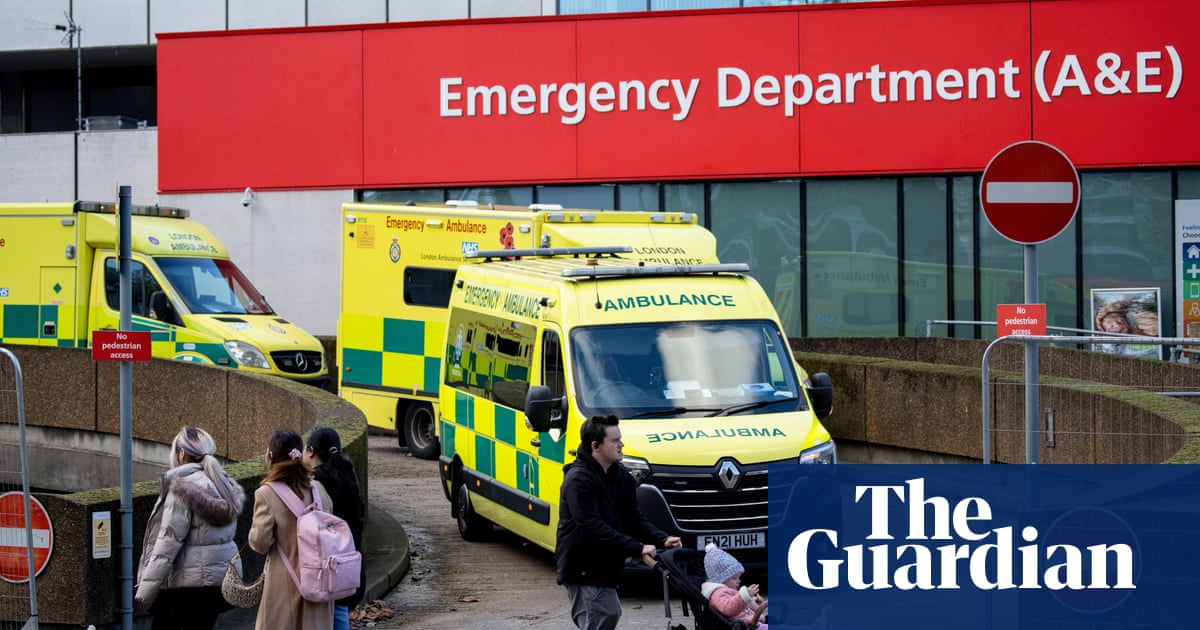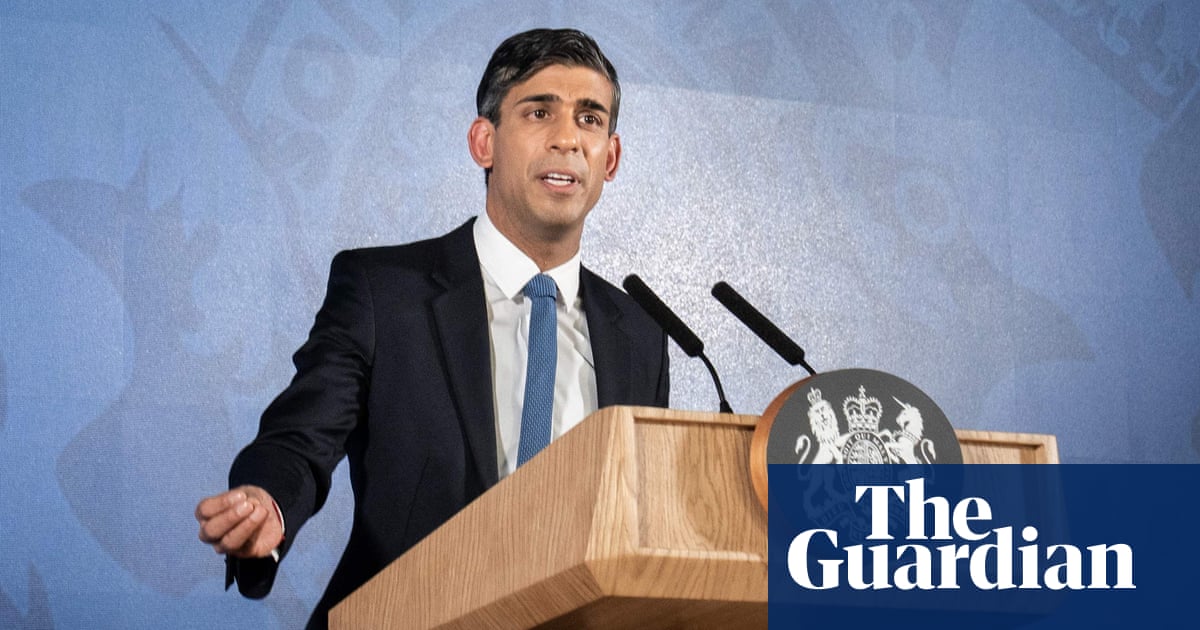
The pressure on the NHS is “intolerable and unsustainable”, medics have said, amid warnings that the deaths of up to 500 people each week could be caused by delays in emergency care.
It comes after more than a dozen NHS trusts and ambulance services declared critical incidents over the festive period, with officials citing rising flu cases and the impact of the Covid-19 pandemic among the reasons for the pressure on the health service.
Prof Phil Banfield, chair of the British Medical Association (BMA) council, hit out at both the prime minister and the health secretary. Highlighting the scale of the crisis facing healthcare workers, he called the government’s decision not to negotiate with medics a “political choice” that is leading to patients “dying unnecessarily”.
“The current situation in the NHS is intolerable and unsustainable, both for our patients and the hardworking staff desperately trying to keep up with incredibly high levels of demand,” he said.
“The BMA has repeatedly invited the government to sit down and talk about the pressures on our health service, but their silence is deafening.
“It is disingenuous for the prime minister to talk about ‘backing the NHS’ in his new year message, when his own health secretary is failing to discuss how this crisis can be fixed.” He called on the government to “step up and take immediate action” to solve the crisis.
The Royal College of Emergency Medicine also doubled down on its claim that somewhere between 300 and 500 people are dying each week as a result of delays and problems with urgent and emergency care, as it warned against any attempt to “discredit” the figure.
Ian Higginson, vice-president of the Royal College of Emergency Medicine, told BBC Radio 4’s Today programme: “What we’ve been hearing over the last few days is that the current problems are all due to Covid or they’re all due to flu, or that this is complex, you mustn’t jump to conclusions – all that sort of stuff.
“If you’re at the frontline, you know that this is a longstanding problem. This isn’t a short-term thing. The sort of things we’re seeing happen every winter, and it still seems to come as a surprise to the NHS.”
Last week, one in five ambulance patients in England waited more than an hour to be handed over to A&E teams. NHS trusts have a target of 95% of ambulance handovers to be completed within 30 minutes, and 100% within 60 minutes.
In November, 37,837 patients waited more than 12 hours in A&E for a decision to be admitted to a hospital department, according to figures from NHS England. This is an increase of almost 355% compared with the previous November, when the figure was 10,646.
Higginson added that the Royal College of Emergency Medicine figures on deaths caused by delays were more than a “guesstimate”. “These are real figures, and I worry that we’re going to hear attempts to spin and manipulate this data and discredit it. I think if we hear that, we’ve got to say, ‘No, that is spin.’”
The figure was questioned by some health chiefs, with NHS England’s chief strategy officer, Chris Hopson, claiming not to “recognise” that estimate.
“We need to be very careful about jumping to conclusions about excess mortality numbers and their cause without a full and detailed look at the evidence, which is now under way,” he told BBC Radio 4’s World at One programme.
On Monday morning, the education minister, Robert Halfon, said Rishi Sunak was treating the issue as a “top priority”, but admitted that more needed to be done.
“The government is putting [in] a lot of funding and doing everything possible. We know, of course, that many of these problems have been caused by the pandemic and the pressures on the NHS that we’ve seen over the past few years.”
But Banfield warned that patients would die due to the current state of the health service. “The government should deliver on its obligations to the public. It is just not true that the cost of resolving this mess cannot be afforded by this country. This is a political choice and patients are dying unnecessarily because of that choice.”
The Liberal Democrats called on the government to recall parliament over the crisis. The party’s health spokesperson, Daisy Cooper, said: “This is a life-or-death situation for huge numbers of patients. The NHS is collapsing in front of our eyes whilst the prime minister and health secretary are nowhere to be seen.
“This is a national crisis and the country will never forgive the government if they refuse to recall parliament whilst hundreds of people die in parked ambulances or hospital corridors. Nobody should lose a loved one because the government was asleep on the job.”
Tim Cooksley, president of the Society for Acute Medicine, said the current situation in emergency departments was “unbearable” and would remain that way without significant changes.
“Unless we engender a belief for both NHS staff and for our patients that things will improve, and unless we are able to retain and then attract colleagues back and recruit new colleagues, then our situation will remain unbearable for a long time.”












